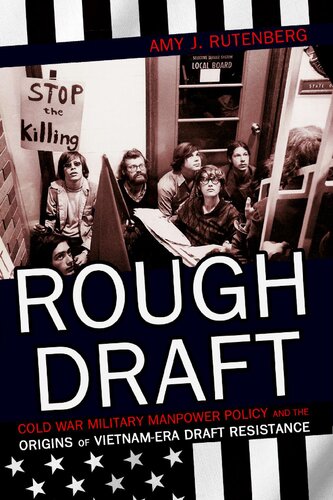

Most ebook files are in PDF format, so you can easily read them using various software such as Foxit Reader or directly on the Google Chrome browser.
Some ebook files are released by publishers in other formats such as .awz, .mobi, .epub, .fb2, etc. You may need to install specific software to read these formats on mobile/PC, such as Calibre.
Please read the tutorial at this link: https://ebookbell.com/faq
We offer FREE conversion to the popular formats you request; however, this may take some time. Therefore, right after payment, please email us, and we will try to provide the service as quickly as possible.
For some exceptional file formats or broken links (if any), please refrain from opening any disputes. Instead, email us first, and we will try to assist within a maximum of 6 hours.
EbookBell Team

4.3
8 reviewsRough Draft draws the curtain on the race and class inequities of the Selective Service during the Vietnam War. Amy J. Rutenberg argues that policy makers' idealized conceptions of Cold War middle-class masculinity directly affected whom they targeted for conscription and also for deferment. Federal officials believed that college educated men could protect the nation from the threat of communism more effectively as civilians than as soldiers. The availability of deferments for this group mushroomed between 1945 and 1965, making it less and less likely that middle-class white men would serve in the Cold War army. Meanwhile, officials used the War on Poverty to target poorer and racialized men for conscription in the hopes that military service would offer them skills they could use in civilian life.
As Rutenberg shows, manpower policies between World War II and the Vietnam War had unintended consequences. While some men resisted military service in Vietnam for reasons of political conscience, most did so because manpower polices made it possible. By shielding middle-class breadwinners in the name of national security, policymakers militarized certain civilian roles―a move that, ironically, separated military service from the obligations of masculine citizenship and, ultimately, helped kill the draft in the United States.